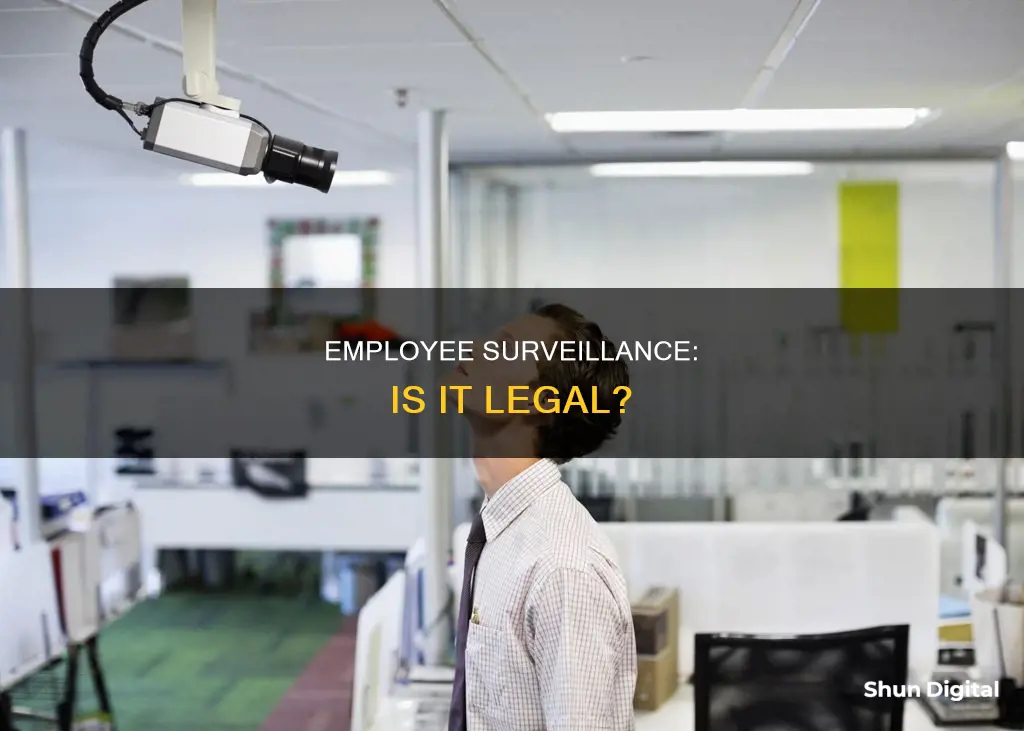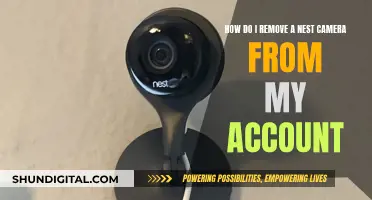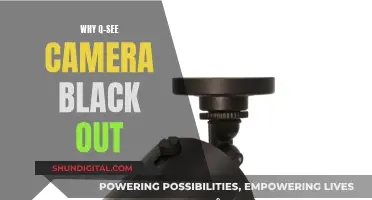
The use of surveillance cameras in the workplace is a complex issue that varies depending on location and context. In general, it is legal for employers to use video cameras in the workplace, but there are important limits and regulations in place. The primary considerations are the employee's reasonable expectation of privacy and the employer's legitimate business purpose for the surveillance.
Employees have a right to privacy in certain areas, such as locker rooms and bathrooms, and employers are prohibited from installing cameras in these locations. In other areas, such as public lobbies or front desks, there is no reasonable expectation of privacy.
Employers must also have a legitimate business reason for using video surveillance, such as security, theft prevention, or monitoring employee productivity. Simply wanting to monitor employees is not sufficient, and courts will weigh the employer's interests against the employee's right to privacy when determining the legality of surveillance.
In addition, while there is no specific federal law on workplace video surveillance in the US, several federal laws are relevant, including wiretap laws that prohibit the recording of certain oral communications and the National Labor Relations Act, which prohibits the use of surveillance cameras to monitor union meetings or activities.
State laws also play a significant role in regulating workplace surveillance, with some states, such as California, Connecticut, and New York, having stricter laws that prohibit video or audio surveillance in specific areas or require prior notification to employees.
In conclusion, while the use of surveillance cameras by employers is generally legal, it is a nuanced issue that requires careful consideration of employee privacy rights and legitimate business purposes, with potential legal consequences for inappropriate or excessive monitoring.
| Characteristics | Values |
|---|---|
| Legality | Generally legal, but depends on state law |
| Notification | Employers must notify workers about filming |
| Legitimate business reason | Required for filming |
| Privacy | Employees have a right to privacy in certain areas |
| Union activity | Secretly filming union meetings is illegal |
What You'll Learn

Legality of video surveillance
The legality of video surveillance depends on several factors, including the location of the surveillance, the purpose of the monitoring, and whether the individuals being recorded have a reasonable expectation of privacy.
In the United States, there is a lack of federal laws prohibiting video surveillance in public spaces or private property. However, the Fourth Amendment to the US Constitution protects individuals from unreasonable searches and seizures, which includes protection from unauthorized videotaping in certain locations.
State laws on video surveillance vary, but generally, it is permissible for employers to conduct video surveillance of their employees as long as they have a legitimate business reason, such as preventing theft or ensuring security. Employers must also notify their employees about the surveillance and ensure that it does not violate any privacy laws, such as those related to union activities or areas designated for employee rest or comfort.
Individuals typically have a reasonable expectation of privacy in places such as bathrooms, locker rooms, and changing rooms, and recording in these areas without consent is generally prohibited. Additionally, some states have specific laws regarding hidden cameras or consent requirements for recording.
Overall, the legality of video surveillance depends on the specific circumstances and the applicable state and federal laws. It is important for employers to understand and comply with the relevant laws to avoid legal issues.
Mobile Camera Viewing: Easy Access for All
You may want to see also

Legality of audio surveillance
The use of audio surveillance in the workplace is a complex issue governed by federal and state laws. While it is not outright illegal for employers to record audio in the workplace, there are several important considerations and restrictions that must be kept in mind.
Firstly, employers must have a legitimate business reason for using audio surveillance to record employees. This could include preventing internal theft, having a record of employee accidents or injuries, and security purposes. However, it is important to note that the law limits employers' surveillance rights when recording union activity. The National Labor Relations Act (NLRB) prohibits the use of video or audio surveillance to record employees' union activities, including meetings and conversations related to union matters.
Secondly, both federal and state laws protect individuals' privacy rights. The Fourth Amendment of the Constitution safeguards individuals' privacy rights by governing how government agents may surveil their effects, including electronic devices. At the state level, most states have passed privacy-related laws, some of which specifically address workplace privacy and the use of audio and video surveillance. For example, in California, it is illegal to install a surveillance mirror in a restroom, shower, fitting room, or locker room. In Connecticut, employers are prohibited from operating surveillance equipment in areas designated for employee rest or comfort, such as restrooms and locker rooms.
Additionally, consent requirements vary depending on the jurisdiction. Federal law and some states follow the one-party consent rule, which allows recording with the consent of at least one person involved. However, some states have more stringent requirements, such as the all-party consent rule, which requires the consent of all parties involved in the conversation. It is important to review the specific laws in your state to understand the consent requirements.
Penalties for breaching surveillance laws can be severe and include substantial fines and imprisonment. Therefore, it is crucial for employers to understand and comply with the relevant federal and state laws governing audio surveillance in the workplace.
Galaxy Watch 6: Camera Expectations and Realities
You may want to see also

Employees' reasonable expectation of privacy
Employees have a right to privacy under the US Constitution's 4th Amendment and the California Constitution. An employee's privacy right has been violated when they can show a legally protected privacy interest, a reasonable expectation of privacy, and a serious invasion of the privacy interest.
Employees have a reasonable expectation of privacy in restrooms, showers, locker rooms, or fitting rooms. However, this expectation of privacy can be waived if the employee handbook states that employees do not have an expectation of privacy while using company resources, such as phones, computers, and email. In addition, according to the federal Electronic Communications Privacy Act, an employer-provided computer system is the property of the employer, meaning that the employer can monitor everything on that computer, including internet usage, unless stated otherwise.
Most video surveillance in the workplace is permissible as long as employers notify workers about it. However, there are some instances where surveillance is not allowed, such as recording union activity or in areas designated for employee rest or comfort, such as restrooms, locker rooms, or employee lounges.
If an employee believes their privacy rights have been violated, they may be able to sue their employer for financial compensation. However, the employee must prove that the employer violated their right to privacy, that they had a reasonable expectation of privacy, that there was a serious invasion of privacy, and that they suffered serious harm as a result of the surveillance.
Watching an Eclipse: Camera Screen Projection
You may want to see also

Legitimate business purpose
The use of video cameras by employers to monitor workers is a common practice, often employed to prevent internal theft, record accidents or injuries, and for security purposes. While this form of surveillance may be permissible, it is dependent on certain conditions being met.
Firstly, employers must have a legitimate business reason for using video cameras to record employees. This could include reducing the risk of theft, protecting patrons from security threats, preventing harassment or assaults, and capturing video recordings of accidents.
Secondly, most video surveillance laws require employers to notify their workers about the presence of cameras. This involves informing employees that they are being watched and, in some cases, requiring employees to sign a form releasing the employer from liability.
Thirdly, the placement of cameras is crucial. Surveillance is typically limited in areas where employees have a reasonable expectation of privacy, such as restrooms, locker rooms, and employee lounges.
It's important to note that state privacy and federal laws play a significant role in determining the legality of surveillance systems. For example, in California, it is illegal to install a surveillance mirror in specific private areas, while in Connecticut, employers cannot operate surveillance equipment in employee rest areas.
To summarise, while employers may have legitimate business purposes for using video cameras, they must navigate privacy laws and employee rights carefully to ensure their practices are lawful and ethical.
Business Surveillance: Watching My Cameras from Home
You may want to see also

Surveillance of union activity
The use of video cameras by employers to monitor employees is a common practice, often used to prevent theft or monitor employees' activities while on the clock. While this practice is generally permissible, employers must notify employees about it and have a legitimate business reason for its implementation.
However, there are legal limitations to an employer's right to surveillance, particularly when it comes to union activity. The National Labor Relations Act (NLRA) prohibits employers from using video cameras to record employees' union activities, including meetings and conversations related to union matters. Employers must bargain with union employees before resorting to video surveillance and cannot use it to intimidate current or prospective union members.
Despite these protections, some companies have been accused of using surveillance to suppress union activity. For example, Google closed a website used by Amazon employees to discuss workplace issues, and Amazon itself has been accused of monitoring employee listservs and Facebook groups to track planned strikes and union activity.
Additionally, Walmart has been accused of using audio surveillance to tap employees' conversations about union-related topics and has integrated "personality tests" into its hiring process to gauge candidates' propensity to unionize.
These actions highlight the challenges faced by employees who wish to organize and the potential for surveillance to be used as a tool to suppress union activity. While there are legal protections in place, employees often have little recourse unless they have a union representative or a grievance process to confront their employers.
Setting Up Swann Camera System: A Step-by-Step Guide
You may want to see also
Frequently asked questions
In general, it is legal for employers to use video cameras in the workplace, as long as there is a legitimate business reason for doing so, such as security or preventing theft. However, employees have a right to privacy, and there are certain areas, such as locker rooms or bathrooms, where camera recordings are usually prohibited.
The use of hidden cameras is generally not recommended, as it can violate employees' reasonable expectation of privacy. Employers must provide a legitimate reason for using hidden cameras and are advised to notify employees about their use.
Federal wiretap laws prohibit employers from recording certain employee communications. Some states have additional laws restricting the use of audio recordings in the workplace.
No, employees have a reasonable expectation of privacy in these areas, and it is illegal for employers to install cameras or conduct surveillance in bathrooms or changing rooms.
If you believe your privacy rights have been violated, you can contact your state department of labor or an employment attorney licensed in your state to discuss your legal options and protect your rights.







